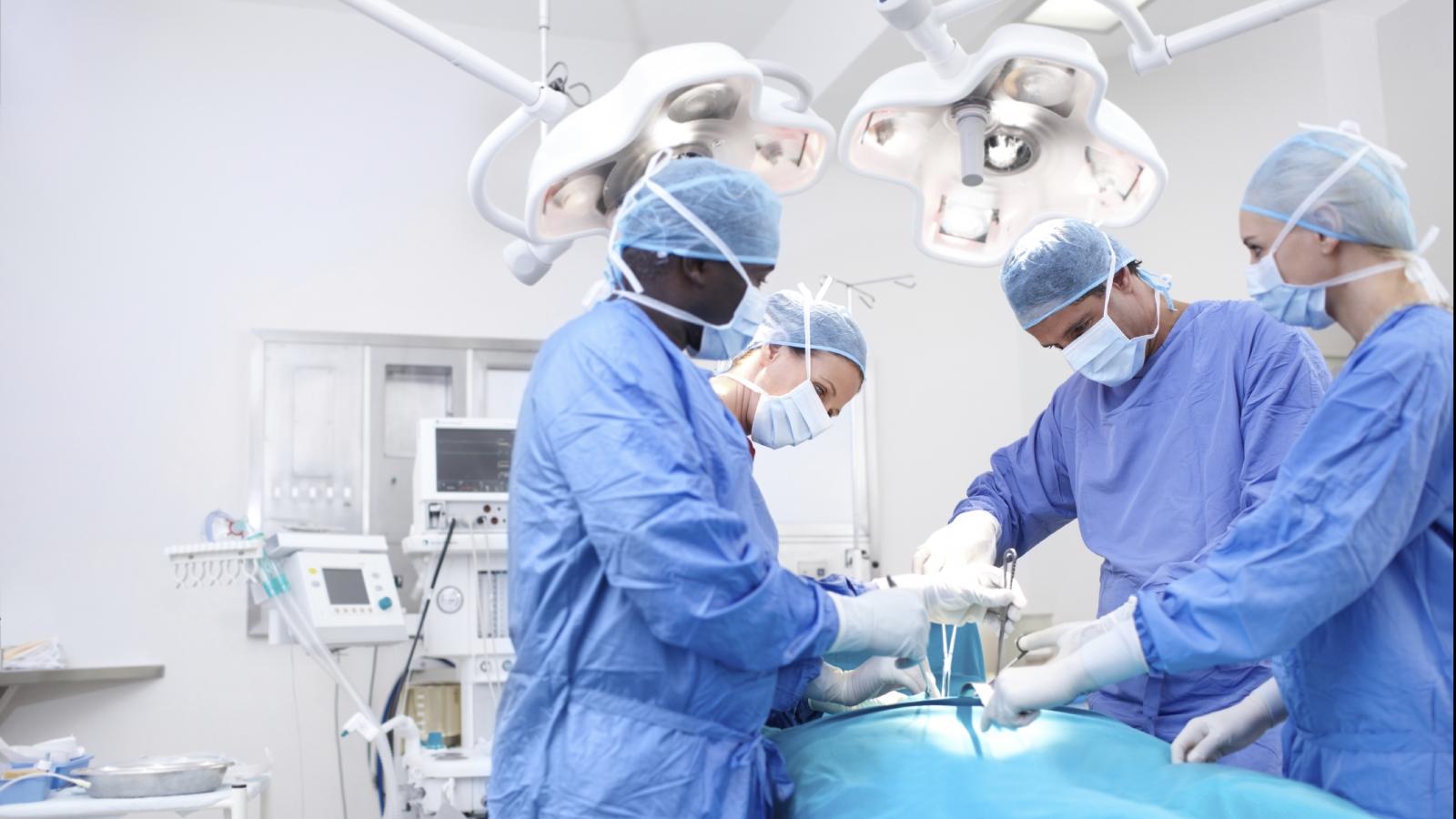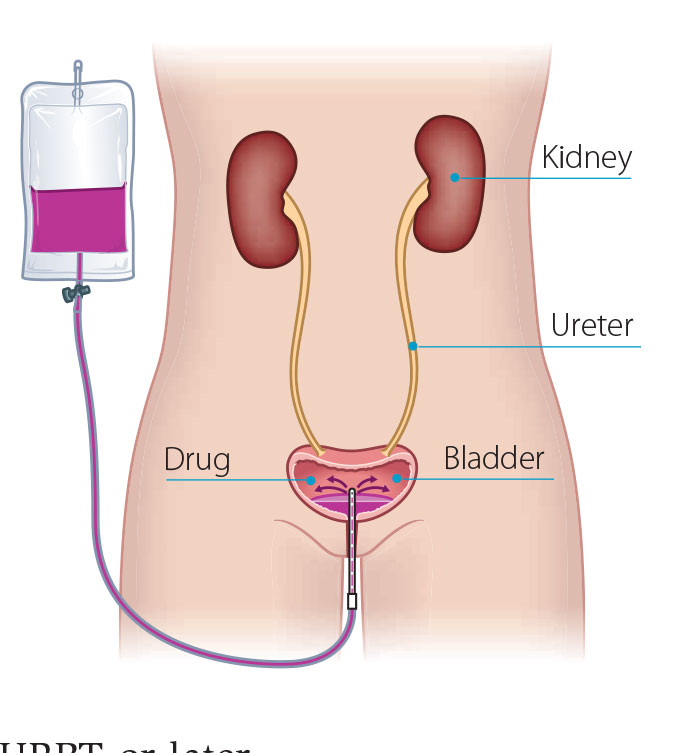How is bladder cancer treated?

On this page:
Your treatment plan
The type of treatment you receive will depend on:
• The size and stage of your cancer
• The type and grade of cancer
• If it has spread or not
• Your age and general health
The treatment or treatments your doctors recommend for you are based on the latest research and international guidelines about the best ways to treat bladder cancer.
You may notice that other people with bladder cancer are not getting the same treatment as you. Their cancer may not be the same type or at the same stage as yours, so your treatment plan may be different.
Ask your doctor or nurse if you are not sure about the type of bladder cancer you have or if you have any questions about your treatment.
Treatment for non-muscle invasive bladder cancer
Most people will have a surgical procedure called a TURBT to remove the tumours. Your doctor may recommend other treatments, such as chemotherapy or immunotherapy drugs given into your bladder.
Superficial bladder cancers tend to come back from time to time. They can be treated in the same way each time. For this reason you will have regular check-ups, where your doctor will to look inside your bladder (cystoscopy).
Drug treatments after TURBT
Chemotherapy
Chemotherapy can be given as a once-off treatment directly into your bladder after your TURBT. This is known as intravesical chemotherapy.
If there is a moderate risk of the cancer returning you may need this treatment weekly a number of times. You may also need to have this treatment if your bladder cancer returns after the initial treatment.
BCG
BCG may be given directly into the bladder if there is a high risk of your cancer coming back after surgery. BCG was originally a vaccine used to prevent tuberculosis (TB).
Read more about drug treatments for non-muscle invasive bladder cancer.
Treatment for muscle invasive bladder cancer
Surgery
Surgery for invasive bladder cancer usually involves removing the whole bladder and then constructing a new way to pass urine. There are different ways of doing this. Read more about surgery for muscle invasive bladder cancer
Radiotherapy
This involves using high energy X-rays to kill the cancer cells. Your bladder will not be removed but you may get side-effects that affect your bladder in the short or long term. Your consultant will discuss with you if you radiotherapy might be helpful for you. Read more about radiotherapy .
Chemotherapy
This is the use of drugs to kill or control the cancer cells. Chemotherapy for muscle invasive bladder cancer is given into a vein (intravenously). You may have chemotherapy during radiotherapy (chemoradiation), before radiotherapy or before or after surgery. Read more about chemotherapy .
Coping with side-effects
The type of side-effects you get will depend on the type of treatment, the dose, the duration and your own general health.
Your doctor or nurse will discuss any possible side-effects with you before your treatment. You can also read about the different treatments for information on possible side-effects.
For more information
Phone
1800 200 700




